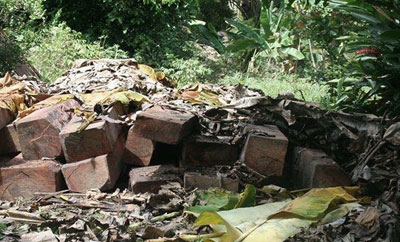Interpol has seized nearly $40 million in illegally trafficked timber, the majority from Venezuela, suggesting the country is an increasingly important market for a criminal activitiy more commonly associated with Central America and countries such as Brazil, Colombia, and Peru.
In a follow-up to a special investigation, “Operation Lead,” which Interpol initiated last year, Costa Rican, and Venezuelan authorities seized a total of 292,000 m3 of wood — 19,500 truckloads. Venezuelan seizures represented about two-thirds of the total amount, with officials confiscating 188,000 m3 in just one month. The timber was confiscated along transportation routes, at sawmills, and at logging sites, said Interpol.
Interpol also noted that in addition to combating the trade through seizures, Venezuelan authorities have reforested around 8,000 hectares affected by illegal logging and have begun running educational programs about the illegal trade.
The initial phase of Operation Lead, Interpol’s first Latin American timber trafficking operation, was conducted from September to November 2012 with efforts from law enforcement agencies in 12 countries in Latin America. During the first phase, officials seized around 2,000 truckloads of wood and arrested nearly 200 people.
InSight Crime Analysis
Venezuela’s role in this latest round of timber seizures is notable, particularly considering that the amount seized in one month represented over three times the total quantity of wood seized internationally during the first phase of the operation (188,000 m3 compared to 50,000 m3).
The illegal timber industry worldwide is estimated to be worth up to $100 billion, with illegal logging accounting for 50 to 90 percent of forestry activity in certain tropical countries and 15-30 percent of the global trade, according to Interpol.
Latin America’s Amazon forest region is one key source of timber for the trade, and illegal forestry is a major industry in Peru, Colombia, and Brazil. In both Peru and Colombia, the timber trade is thought to have ties to organized crime, including the Shining Path in Peru and BACRIM groups in Colombia.
Although Venezuela’s role in the trade has been less talked about, the country possesses characteristics noted by the United Nations Environmental Program (UNEP) as contributors to the trade, including high levels of government corruption, poverty, and economic instability. The country also has large areas of sparsely populated jungle, and a number of Colombian criminal organizations — including the BACRIM — are present in the country.

